How can live-in care help an older person with cancer?
Tags
Live-in care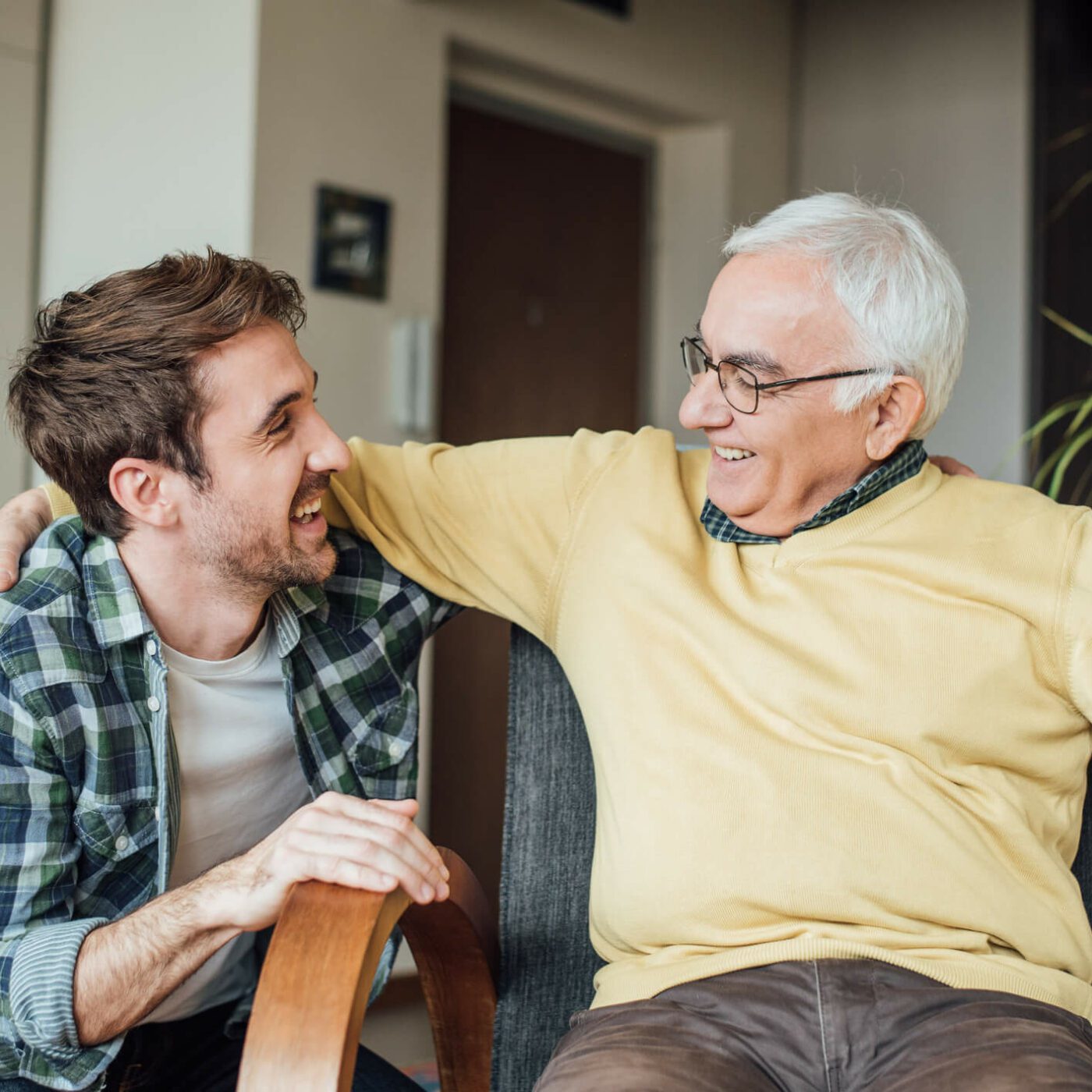
Age UK estimated that in 2020 there were 2m people aged 65 and over living with a cancer diagnosis in the UK.
According to Cancer Research UK, while cancer survival rates have doubled over the last 50 years, survival is still lower among people those diagnosed after the age of 75.
Cancer is a condition which can strike anyone. There are lots of different types with different symptoms. Cancer Research defines cancer as a condition caused by the uncontrolled growth and reproduction of abnormal cells. These cells can multiply too much and form a tumour. They can sometimes spread to other organs or parts of the body in a process known as metastasis.
The progression of cancer is usually referred to as a ‘stage’ – denoting how big a tumour or the effected area is, and whether it has spread within the body. Stages can help determine how quick a cancer may grow, which treatment may work best, and what the long-term prognosis may be.
Cancer in the elderly can be difficult to manage. Receiving a cancer diagnosis is usually a frightening and daunting experience, but understanding how to care for a parent or loved one with cancer can also come with its own challenges.
If you or a loved one has been diagnosed with cancer and you’re concerned about managing at home there are a number of options to explore for care at home. This may range from full-time support from family, having a volunteer or paid companion call in to help with errands and cleaning, or arranging live-in support from an experience cancer carer. We’ll look at some of the options in more detail, and share some helpful resources on this page.
Facts about cancer
- In the UK, it’s estimated that a person is diagnosed with cancer every 90 seconds.
- There are more than 200 different forms of the disease and each is treated very differently.
- it’s estimated that 1 in 2 people will develop some form of cancer during their lifetime.
The challenges of cancer in the elderly
Age UK have identified a number of reasons why older people may face more challenges during their cancer experience.
Low awareness of risk – cancer is more common as we age. Damage to the cells in our body can build up over our lifetime and cause them to grow or multiply more than usual. This can sometimes lead to cancer.
Not recognising symptoms – as well as noticeable lumps, cancer may cause things like jaundice (yellowing skin), a cough that won’t go away, a change in bowel habits that won’t go away, and unexplainable weight loss of 5kg or more.
Treatment decisions being made based on age – We need to critically assess our cancer services to ensure they are meeting the needs of an ageing population. Age UK believe older people are sometimes ‘under-treated’ due to age discrimination, i.e making judgement calls based on age alone rather than the overall health and fitness of an individual. This is obviously unacceptable. The Equality Act 2010 means it’s against the law to use age as a sufficient reason to withhold certain services, and applies to the NHS. If you feel you’ve been under-treated for cancer due to your age, there’s a number of avenues you can explore for support, for example –
- An independent advocate, such as POhWER
- A charity, such as Macmillan Cancer Support
- Citizen’s Advice
In addition to this, people over 75 years old may refuse treatment themselves due to concerns that they’ll spend their later years in hospital or experiencing unpleasant side effects of treatments like chemotherapy. However, according to Cancer Research UK, treatments are getting kinder and more effective.
Preexisting health conditions may make an older person’s cancer experience more challenging too, meaning they need more support throughout diagnosis and treatment with things such as –
- personal care
- staying social
- nutrition and eating regularly
- staying independent
- managing finances
- staying active
How can I take care of a cancer patient at home?
As with any condition or illness, many people with cancer feel more comfortable being looked after in their own homes. Depending on the stage of cancer or the medical treatment a person is receiving, this may not always be possible, and a nursing home or hospice setting may be best. However, many older people are able to remain at home after a cancer diagnosis, and there are things you can do to help them manage.
Create the right environment and offering practical support
If a loved one is likely to find stairs a challenge during their treatment and the home has a downstairs bathroom, you may wish to move their bedroom downstairs temporarily. Choose a dining room or reception room that won’t be used by other people in the home, and which has privacy.
Often people want to stay as independent as they can, so try asking them if there’s anything in particular you can help with. Some areas where you may be able to help include –
- making some meals for the freezer or keeping the fridge stocked with snacks – be mindful that treatment may change how certain foods taste, or cause a sore mouth or throat, so it’s a good idea to ask them what they feel like eating.
- offering lifts to and from the hospital or GP when they have appointments, or picking up prescriptions
- helping with laundry or keeping the home clean and tidy
- looking after pets – this may include taking the dog for walks when they can’t manage themselves, cleaning out cat litter trays, applying flea or worming treatment, and making sure the cupboards are stocked with enough pet food.
Looking out for their quality of life
Seeing friends and family, and taking part in hobbies are essential to a good quality of life, but are also often the first things we stop doing when we’re unwell.
Every person with cancer is different and how they feel and wish to spend their time can change. They may feel motivated for you to visit one day, but want to be left alone next. It’s important to not take their decisions personally, and make sure you’re making the time you do spend together enjoyable. Try to keep things as normal and comfortable as possible, this could be by doing something as simple has having a cup of tea and a chat or laughing along to a favourite TV show.
Being there emotionally
Cancer Research UK state that emotional support from friends and family can make a big difference. If you’re worried about saying the wrong thing, this is completely normal, and why they’ve put together the following guidance –
- acknowledge if you feel awkward
- a hug, hand squeeze, and eye contact can go a long way
- let them know you’re thinking of them if you can’t be there in person – try a text, call or letter
- respect their need for privacy, or if they don’t want to talk
- offer support throughout the whole cancer experience, people can need just as much support after treatment as during it
- don’t offer advice they haven’t asked for or compare their situation to someone else’s
- don’t feel you need to fill every silence, sometimes just sitting together can be a comfort
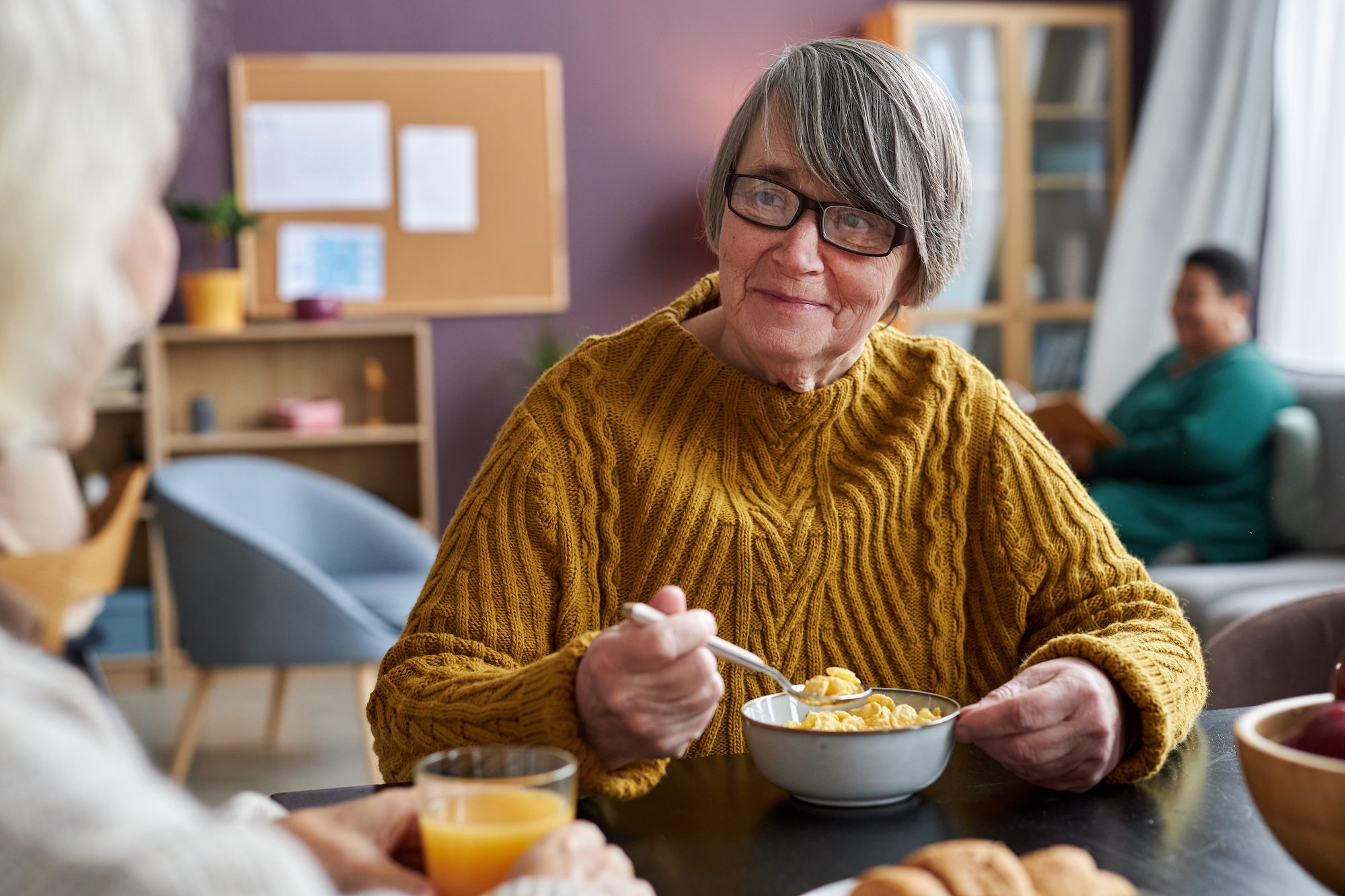
What are free cancer care packages?
A number of charity organisations offer free care packages or self-care kits to people with cancer – the aim is to provide comfort and promote self-care while in hospital or resting at home.
Each week Cancer Support UK sends out care kits to people currently undergoing or recovering from chemotherapy or radiotherapy. The kits contain things like cosy socks, books, herbal teas, and toiletires. They also offer a special Comfort Kit for people over 65 years of age. There’s a limited number available each week, and you can request a kit here.
Little Lifts is a charity on a mission to provide carefully curated NHS approved gift boxes to people with breast cancer. The packages are designed for those undergoing active treatment or recovering from treatment and combining mood boosting and practical gifts. You can find out more and order a box here.
Something to Look Forward Too provides free gifts donated by companies and individuals to help reduce stress and support recuperation. These gifts are usually experience based, ranging from free light therapy, massage and yoga, to days out and UK holidays. You can find out more here.
Who cares for cancer patients at home?
Some people only require a little help from family and friends at home, while others need the support of a cancer care team made up nurses and professional carers. It can all depend on a lot of different factors, such as –
- the type of cancer you have
- the type of cancer treatment you’re receiving
- The stage of your cancer
- the symptoms you’re experiencing, and how easy these are to manage
- your family structure – i.e do you have someone living with you, or who lives close enough to offer help themselves?
- whether you’re starting end of life care
- What you want for your cancer journey
People with early stage cancer, or who have been told by a medical professional can return home safely with the right support may benefit from a professional carer – even if they have support from their friends or family. This is because caring for a loved one can be really tough in the long-run. It can be physically and emotionally tiring, and some people may feel pressured to take on more than they should, especially if a person is becoming more unwell.
A professional carer will be able to –
- provide full-time care, or regular visits so that family carers can take a break
- Help with personal care, like washing, dressing, and getting to the toilet (this can sometimes be awkward or uncomfortable for a family member to help with)
- look out for any changes in symptoms or behaviour and seek the right medical support
- take care of domestic chores like cooking, light cleaning and shopping
- take care of a pet
- encourage gentle exercise if the person if up to it, such as taking a short walk together
To find a carer, you can either hire one privately, use an agency, or go through your local council. Your council will want to complete both a needs assessment and a financial assessment, to work out the type of care you need and whether you qualify for financial assistance. It’s important to voice your wishes to be cared for at home when speaking to your council, and if you’d like to choose your care provider yourself you’ll need to ask them about direct payments (or Self-Directed Support, if you’re in Scotland
Home care for advanced cancer
While it is possible to be at home with advanced cancer, Macmillan Cancer Support state that at this stage home care will usually be directed and delivered by a healthcare team of doctors and nurses – although exactly what this looks like can differ across the UK.
This is often because some level of regular nursing care is needed, such as injections or treatment with controlled drugs, tube feeding, STOMA care, or changing wound dressings.
A typical home care team may include –
Your GP – they’ll usually be responsible for your overall care by prescribing drugs, helping arrange support from other healthcare professionals, and assisting with hospital admittance and hospice care.
Nurses – community nurses or district nurses will usually visit you at home to provide the nursing care we mentioned above. They can support any carers, and help you to access practical medical aids such as a pressure relieving mattress or bedpan.
Occupational Therapists – these specialists can provide additional support to help you manage your routine, make certain day-to-day tasks a little easier, and help you cope with difficult or distressing symptoms. For example, if you’re struggling to get around your home they may help you find the right mobility aids, and if you’re experiencing shortness of breath they may offer some breathing techniques for you to try.
A social carer – if the family wants or needs some help a social carer can come in and provide supportive care, alongside the medical or nursing care you’re receiving. This includes things like preparing meals, helping a person to stay clean and groomed, and keeping the home in order.
For patients with cancer who are receiving palliative care or end of life care, their palliative care team may be similar to the above, but also include psychological and spiritual professionals. Find out more about palliative care here.
What can I say, Elder came to our rescue when we needed care extremely quickly for a loved one who had terminal cancer. We wanted him to come home from hospital to be able to die in peace. The NHS couldn't provide any carers as they were inundated at the time.
I phoned Elder and straight away they were very professional and sympathetic. They soon supplied us with a carer who came to live in to share the work of caring for our bed ridden family member. I can never thank Elder and Maciej, who we chose from the carers they offered, enough.
Maciej was indeed magic, as he was kind, caring and showed absolute respect for our family and our loved one. He quickly became an integrated member of our family and he went above and beyond what his duties should have been. Thank you to all the Elder team, we will never forget your kindness and help.Trustpilot feedback
Live-in care for older people with cancer
Looking after someone with cancer at home can be a difficult time for family members, so many have found that having a professional caregiver there to support is beneficial. Not only can it help to reduce worry and offer some peace of mind but having professional care allows the family to get some respite and focus on other things, like their own emotional well-being, their work responsibilities, or other family commitments. Even if you don’t feel you need a professional live-in carer full time, short periods of for a week or so at a time can provide respite care so that family caregivers can take time to rest and recharge
Live-in care is an increasingly popular form of elderly care. With a live-in carer, you or a loved one can remain in your own home and receive all the help, support, and companionship you need as you come to terms with, adjust to life with, or are treated for cancer.
A live-in carer can assist with everything from preparing meals and snacks according to needs, e.g loss of appetite, changing tastes, or sore mouth or throat, to helping manage some of the side effects of treatment. This may include keeping sore or itchy skin moisturised, or helping combat tiredness by maintaining a consistent and relaxing bedtime routine.
They can also help with more practical tasks like cleaning and looking after pets, driving to and from hospital appointments and treatment sessions, and help with hobbies and seeing friends.
For palliative cancer patients a love-in carer may also be able to support your palliative plan – helping you maintain your routine, spend quality time with loved ones, and get out and about if you want too.
At Elder, we understand the issues and needs surrounding caring for a parent or loved one with cancer. We know that at this stressful time, you want a solution that makes life easier, not more complicated. That’s why our live-in care service helps with every aspect of providing expert elderly care at home. From the moment you contact us, through to finding a carer and making sure everything is running smoothly, we’ll be there.
We match professional carers to care recipients based on factors, such as location, experience, personality and attitude, to make sure the person your parent welcomes into their home is right for them.
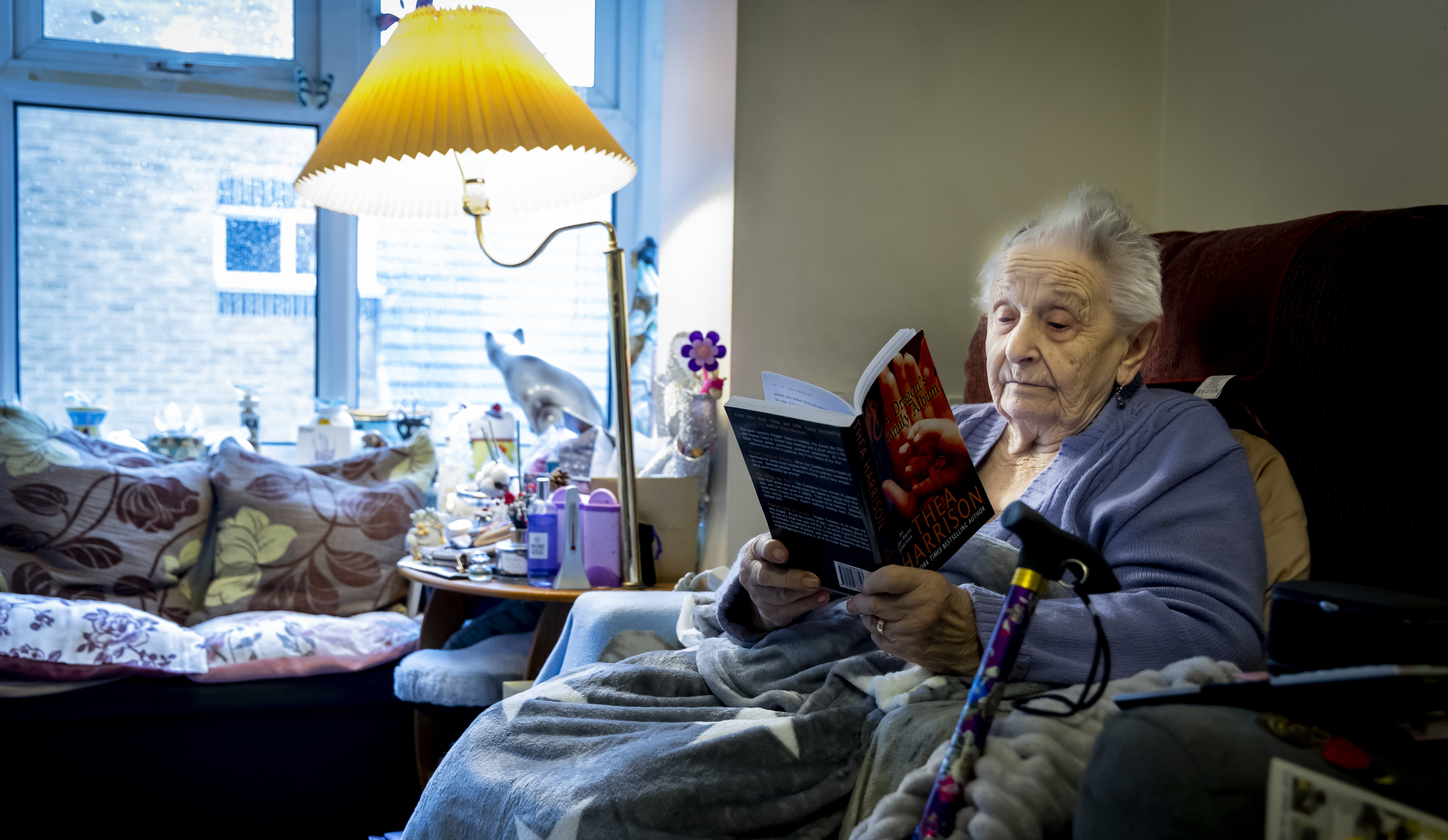
Funding cancer care at home
As we’ve covered, you may b e eligible for some financial support from your local council to help cover some or all of your care costs.
Another form of funding is called NHS Continuing Healthcare (CHC) funding. While health costs in the UK are free under the NHS, care costs usually aren’t. CHC covers every penny of care for people with life-limiting and complex conditions. For people with a prognosis of just a few weeks or months of life the application process can be fast tracked too, with people being granted the funding in around 24 hours.
It’s worth noting though that CHC is reserved for those with intensive health and care needs, meaning those who qualify will usually need specialist or nurse-led care, outside of what an introductory service like Elder can provide.
Resources that can help
We know a cancer diagnosis can be difficult, therefore it is important to know what support and resources are available to you. Cancer Research UK has lots of information available to help you understand your diagnosis – and Macmillan Cancer Support can help you through your journey.
Read more about care at home

What type of background checks should I be doing on a home carer?
What type of background checks should I be doing on a home carer? When you employ a home carer to look after a vulnerable

Elderly nutrition: cooking & meal preparation for the elderly
Elderly nutrition: cooking & meal preparation for the elderly Healthy eating should always be a priority, but as we age, our nutritional needs change
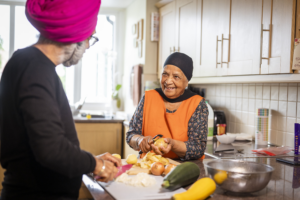
What domestic tasks will a home carer look after?
What domestic tasks will a home carer look after? Live-in carers are at the heart of our comprehensive approach to round-the-clock home care. Care

Home care and self-employed carer insurance
How are home carers insured? Deciding to bring on care at home for a loved one can be an emotional process. Because of this,
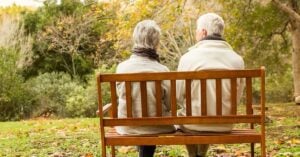
How to care for elderly couples and keep them together
How to Care for Elderly Couples When a couple has lived together for many years, they usually want to stay together, however this can
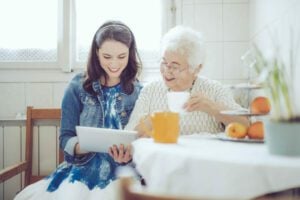
Home help for the elderly
It’s natural to need a little help with things as we age. However, if you or a loved one is finding daily tasks more